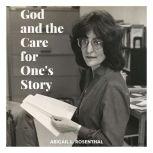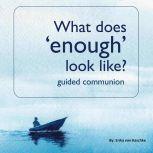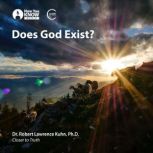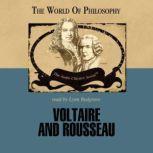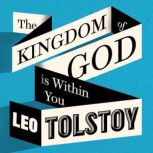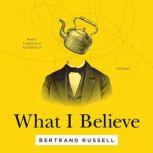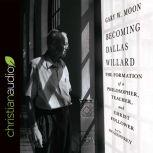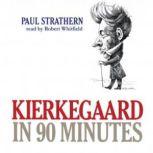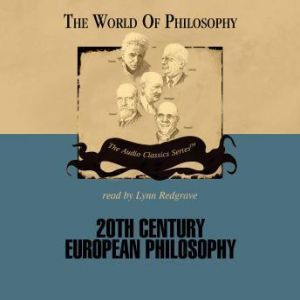
Details
20th Century European Philosophy
Author: Professor Ed Casey
Series: The World of Philosophy Series
Narrator: Lynn Redgrave
Unabridged: 2 hr 58 min
Format: Digital Audiobook
Publisher: Blackstone Audiobooks
Published: 04/14/2006
Genre: Philosophy - Religious
Synopsis
Twentiethcentury European philosophy has grown out of two movements: existentialism (emphasizing the everyday turmoil of living) and phenomenology (seeking the essential, indispensable core of things grasped by pure consciousness). These movements highlight consciousness, meaning, freedom, and body; later philosophers have also stressed language, discourse, and power. Major figures in "continental philosophy" are: Edmund Husserl (18591938) focused on pure consciousness, a nonbodily region with its own structures and laws. Bypassing considerations of space and time, Husserl used direct intuition to investigate the essences of material and psychical entities as they inhabit the mind. Husserl laid the groundwork for cognitive psychology and Gestalt psychology. Martin Heidegger (18891976) explored the nature of Being, not through intuition but through interpretation and understanding of the "primary sources" of consciousness, as found in the everydayness of beingintheworld. He believed that the essence of human being is not consciousness but existence and he underlined the importance of Being and language. JeanPaul Sartre (19051980) pointed to our existential freedom to create ourselves out of the "nothingness" from which we cannot escape. Maurice MerleauPonty (19081961) concentrated on the role of the experiential body, an ambiguous yet active vehicle for our past experiences and our "rising toward the world." Jacques Derrida (1930 ) responded to the linguistic "structuralism" of Ferdinand de Saussure by expanding his analysis of language to include much more than the spoken word, showing the primacy of writing at a deep level. The inventor of "deconstruction," Derrida pursues the difficult notions of "spacing" and "difference." Michel Foucault (19261984) focused on the "archeology of knowledge," demonstrating how institutions radically shape an individual's concrete actions and ways of thinking. A cultural relativist, Foucault believed that there are no enduring principles that transcend our situation in history. Emmanuel Levinas (19061995) rejected a focus on essence or Being in favor of a concern for others i.e., ethical relationships with what he calls "the Other."
by Abigail L. Rosenthal
The recent philosophic literature that revives the case for theism does not ordinarily take in the evidence for providential intervention that’s to be found in ordinary experience. For many people, such experience has tremendous impact yet, to...
Published: 01/22/2021
by Peter Walker
When we enter through the Gate of Jesus – by repentance and faith - we enter into his eternal kingdom. In that moment, we become citizens of heaven. Yes, we still find ourselves here on earth, but everything has changed. Earth is no longer our...
Published: 05/05/2022
by Erika von Kaschke
In a world shaken up by COVID-19, our eyes have refocused on the things that matter most. Many have started searching for God, trying to piece together the puzzle of life and to find secure footing.There are many opinions to be found, but as you rea...
Published: 02/08/2021
by Robert L. Kuhn
Does God exist? How do you justify your belief or unbelief to others? A delicate matter, you rarely have the occasion to fully explore these questions in daily life. Now, this special series invites you to join some of the world’s leading thin...
Published: 03/22/2019
by Professor Charles Sherover
Voltaire and Rousseau offered opposing viewpoints on the major intellectual movement of their time: the Enlightenment. Like most Enlightenment thinkers, Voltaire repudiated tradition and history, embracing reform based on individualism and intellect...
Published: 04/09/2006
by Leo Tolstoy
Banned in Russia, Tolstoy's The Kingdom of God Is Within You was deemed a threat to church and state. The culmination of a lifetime's thought, it espouses a commitment to Jesus's message of turning the other cheek. In a bold and original treatise, T...
Published: 10/13/2022
by Bertrand Russell
Remarkably relevant, beautifully written, and filled with wit and wisdom, these three essays by Bertrand Russell allow the listener to test the concepts of the good life, morality, the existence of God, Christianity, and human nature. "What I Believ...
Published: 01/01/1995
by Gary W. Moon
Dallas Willard was a personal mentor and inspiration to hundreds of pastors, philosophers, and average churchgoers. His presence and ideas rippled through the lives of many prominent leaders and authors, such as John Ortberg, Richard Foster, James B...
Published: 03/27/2018
by Paul Strathern
Kierkegaard wasnt really a philosopher in the academic sense. Yet he produced what many people expect of philosophy. He didnt write about the world, he wrote about life, about how we live and how we choose to live. His subject was the individual and...
Published: 06/25/2005

